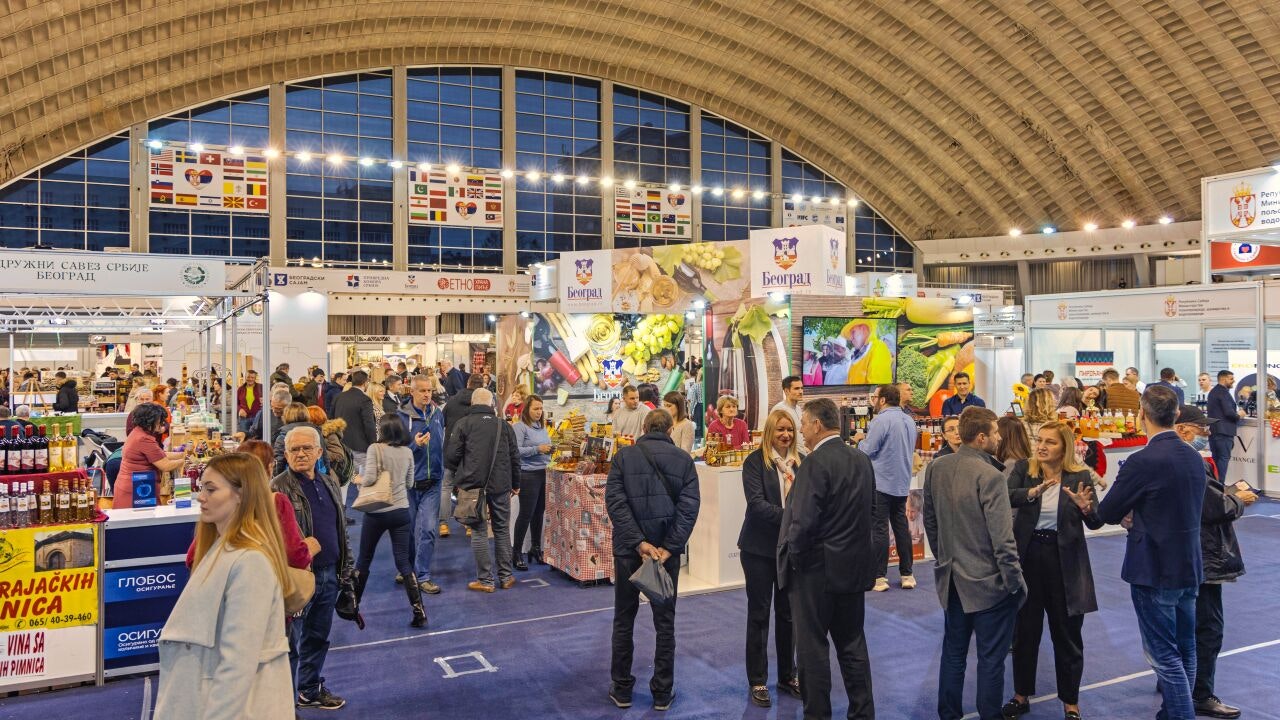
Is your global company looking to expand into the Serbian market? You've come to the right place!
Serbia could be an excellent choice for international expansion. It offers a unique strategic location in Southeast Europe with strong ties to other markets and a lucrative open economy.
But the Serbian market also presents some challenges for international companies, including a sometimes uncertain political climate and differing selling habits.
With the right information and guidance, you can set your business up for success in this promising market.
In this guide, you'll learn about Serbia and how to adapt your content to thrive in the Serbian market.
Let's get started!
Market overview: What you need to know about Serbia
Serbia is a landlocked country in the central Balkan Peninsula in Southeast Europe. It has a population of 6.9 million people and its capital city is Belgrade, which has 1.4 million inhabitants.
The market sits at the crossroads between Europe, the Middle East, and Africa. This makes it an attractive option for global companies looking to explore a variety of business opportunities and gives it strong strategic logistics links.
Banking is one of the core industries in Serbia, for which it has earned the nickname of the "Switzerland of the Balkans." The Serbian government actively supports foreign investments and provides incentives and tax breaks to encourage more companies to enter the market.
Serbian market demand is mostly centered on functional products rather than luxury items. This is reflected in the top imports, which are petroleum, electricity, cars, pharmaceuticals, and broadcasting equipment.
Digital adoption in Serbia: GDP and demographics
Digital commerce is growing at a rapid rate in Serbia, making it an interesting growth market for online businesses. As of 2022, internet penetration was around 85%.
Mobile device usage is also very high, with 5.4 million people accessing the internet through mobile devices. Owning a smartphone is now almost mandatory in Serbia. Social media is also a strong channel for reaching customers as there were 5 million social media users in January 2023.
The Serbo-Croatian language offers strong potential for companies looking for a largely untapped but profitable market. According to CSA Research, the language commands 0.17% of the eGDP (the percentage of global online income opportunity for companies). It also commands 0.28% of the total online population but has very low support on brand websites.
If you are looking to move into a market that has a lot of future potential, it makes sense to target Serbia and the Serbo-Croatian market.

What languages are spoken in Serbia?
There is only one official language: Serbian.
Despite this, Serbia is a multilingual country. Other languages spoken include Hungarian, Albanian, Slovak, and various others, many of which correspond to the countries surrounding Serbia.
The Serbian language is very closely related to the Bosnian and Croatian languages. They are mutually intelligible when spoken, use almost identical vocabulary and grammar but use different alphabets.
If you want to communicate effectively with buyers in this market, it is a good idea to localize your content into Serbian. Even though the language is similar to others, people respond better to content in their own language.
The market also has a relatively high level of English understanding, ranking 27th in the world English Proficiency Index. However, the buying preferences and cultural backdrop are sufficiently different from English-speaking markets like the USA that it is wise to localize your content.
5 compelling benefits to doing business in Serbia
There are some significant benefits that you can gain by growing your business into the Serbian market.
Some of these benefits include:
1. A business-friendly environment for foreign companies
Doing business in Serbia offers a wealth of advantages thanks to its friendly environment for foreign companies.
The government actively encourages foreign investment. Even as far back as 2017, Serbia was mentioned as one of the few countries in Southeast Europe where foreign companies could make stable direct investments.
2. A strong strategic location in Europe
Although it is not currently a member of the European Union, Serbia is well integrated into Europe. It provides easy access to the rest of Southeast Europe and the capital, Belgrade, is an important hub for banking, trade, and transportation in the region.
Serbia also maintains warm relations with other global powers, including the European Union, Russia, Turkey, and China.

3. High availability of human resources
Serbia is an open economy with a highly educated labor force, available at comparatively low cost.
The Serbian government has made great strides to improve education over the last 20 years, with education often offered in different languages. This means that you have access to educated people who can communicate globally.
4. Free zones that help you save money
Serbia sits within a free zone of the European Union, which gives you special benefits and a preferential tax regime for doing business with other European countries.
Combined with the low tax rates of just 15% on profits in Serbia, this can offer a significant saving.
5. A well-paved path for foreign businesses
If you decide to grow your business in Serbia, you can benefit from the thousands of other foreign businesses that already operate in the market. According to estimates, one in ten business owners in Serbia is a foreigner.
However, despite this strong foreign presence, there is very little support for the Serbian language on brand websites. Adding this language support gives you an easy way to set yourself apart from competitors.
Compliance and regulations in Serbia you should know about
As a foreign company looking to operate in the Serbian market, you should be aware of the different rules and regulations.
There are four main legal forms for operating in Serbia, which are partnership, limited liability company (LLC), public company, and entrepreneurship. Each legal form has a different set of requirements that probably differ from your home market. For example, a LLC has a minimum capital requirement of just €1 while a public company requires a minimum of €25,000.
When it comes to taxation, corporate income tax is the main type imposed on entities operating in Serbia. Both Serbian residents and foreign companies are subject to the 15% corporate income tax rate, and it's worth knowing that tax losses can be carried forward for 5 years. You can find many other relevant regulations in this 2022 report from Deloitte.
What is the political climate like in Serbia?
The political climate in Serbia is generally stable, but there are certain challenges that you should know of as they may affect your business operations.
Organized crime and corruption are pervasive problems in the market, ranging from arms trafficking to cybercrime. There is also a lack of independent and transparent oversight for law enforcement. The government has made progress to tackle these and other issues, such as money laundering, but the number of criminal convictions remains low.
Serbia has been trying for many years to enter the European Union, having applied for membership in 2009 and receiving full candidate status in 2012. As a result, the market is committed to stabilizing the political climate even further.

The 5 keys to successful sales in Serbia
If you want your business to be successful in the Serbian market, it helps to understand the sales etiquette and culture.
Here are 5 keys to successful sales in Serbia:
1. Don't be afraid to advertise aggressively
A subtle approach to advertising will probably not be rewarded in Serbia. For consumer goods, especially, aggressive product promotion can be a very effective tool.
The television, though falling out of favor in other markets, is still a strong platform in Serbia, reaching 90% of households.
2. Providing financing options will set you apart
Serbian banks have very tight policies for providing credit to consumers. Getting credit has been made even harder following recent knocks to the economy.
If you can offer financing for your products, you are more likely to make the sale, as people can't find credit elsewhere. Buyers often prefer to pay in monthly installments, even for low-cost products.
3. Embrace the different dynamics of trade fairs
If you are operating in the business-to-business space (B2B), trade fairs are a popular and effective way to introduce your products to the Serbian market. A popular fair is The Belgrade Fair where many foreign companies exhibit.
Remember that trade fairs aren't as sophisticated as those in the United States or other markets. It's worth becoming familiar to the different dynamics of the Serbian trade fairs.
4. Offer eCommerce in the Serbian language
Ecommerce is becoming increasingly popular in Serbia with 70% of the population buying at least one product online in 2021.
The Serbian government has also significantly improved the legal framework for eCommerce, both for online businesses themselves and for the logistics required for sending products.
5. Utilize digital marketing and social media
Total spending by Serbian companies on digital marketing and social media increased by 28.8% ECOMM between 2020 and 2021. This shows that digital channels are increasingly important for companies looking to succeed in this market.
Spend some time developing strong digital marketing and social media strategies to effectively reach and engage your customers in Serbia.
Where to get further help on moving into Serbia
Do you have plans to expand your business into the Serbian market?
With Rubric, you can make that transition with the help of our team of experts. Our team has a wealth of experience localizing content for the Serbian consumer and we understand what it takes to succeed in this market.
We can help you ensure that your transition into Serbia is seamless and that your product or service has the best chance of success. We can also provide you with advice on how to streamline your localization process, helping your company to speak more efficiently in the Serbian market.